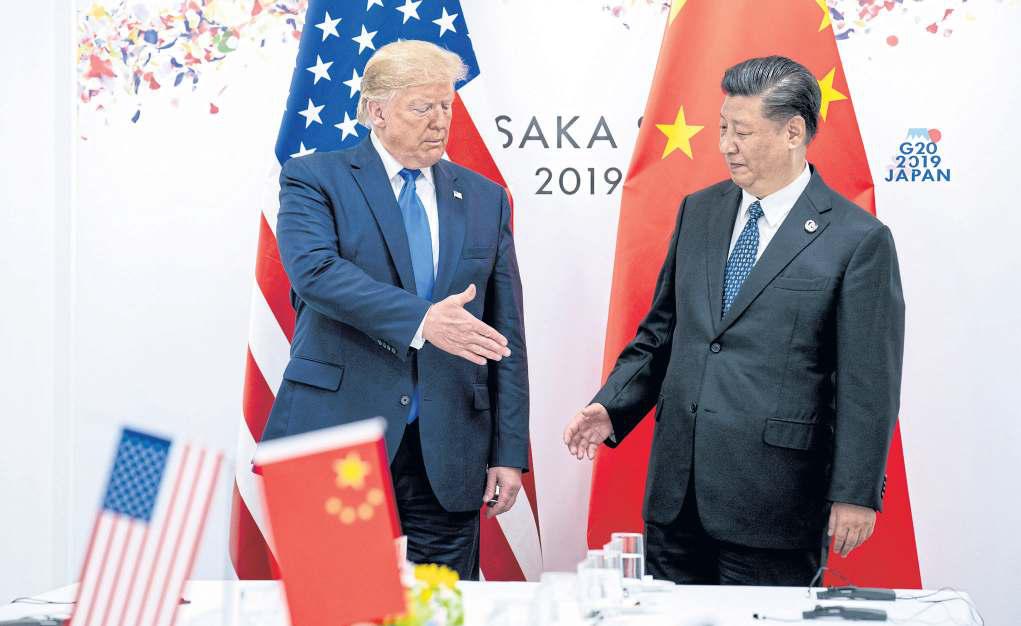कोशिश गोल्ड - मुक्त
Southeast Asia amid the US-China rift
Bangkok Post
|October 03, 2025
The rivalry between the United States and China has become the defining contest of the 21st century. Barely two decades ago, Washington and Beijing were partners in prosperity. America’s support for China's entry into the World Trade Organization in 2001 epitomised the high-water mark of engagement, reflecting the belief that economic integration would lead to greater political cooperation. Today, that partnership has morphed into suspicion and confrontation. Relations between the United States and China have deteriorated so swiftly that many observers now describe them as locked in a “new Cold War”. The more pressing question, however, is not whether this analogy holds, but whether confrontation can be managed short of outright conflict.

China’s economic ascent was initially encouraged, even celebrated, by the US and its allies. In the 1990s and early 2000s, Beijing was seen as a responsible stakeholder, integrating into global supply chains, attracting foreign investment, and lifting hundreds of millions out of poverty. For a time, it seemed the promise of globalisation was being realised. But confidence gave way to concern as China began to flex its newfound power more openly.
The 2008 Beijing Olympics symbolised China's national revival and confidence both at home and abroad. Four years later, Beijing’s construction of artificial islands and militarisation of the South China Sea unsettled the Southeast Asia region and signalled a bolder strategic posture. President Xi Jinping’s rise to power appears to be the decisive turning point. Within his first year, he launched the Belt and Road Initiative, a sprawling infrastructure and investment drive that revived both overland and maritime Silk Roads as platforms of influence.
The US was initially slow to react. President Barack Obama's “pivot to Asia” promised to rebalance American strategy, but implementation lagged. Even when the Permanent Court of Arbitration ruled overwhelmingly in 2016 against China's maritime claims, Beijing ignored the verdict without meaningful consequence. It was Donald Trump's first presidency that marked the sharp break.
Inhis first term, Mr Trump's imposition of tariffs and restrictions on advanced technology started a trade and tech war. His moves reflected a deeper political transformation in the US, as decades of scepticism toward globalisation and free trade moved from the margins to the mainstream. “America First” nationalism, once a fringe doctrine, became the organising principle of US foreign and economic policy. By his second term, Mr Trump could declare sweeping tariffs not as a sudden departure but as the logical culmination of a longstanding geostrategic campaign.
यह कहानी Bangkok Post के October 03, 2025 संस्करण से ली गई है।
हजारों चुनिंदा प्रीमियम कहानियों और 10,000 से अधिक पत्रिकाओं और समाचार पत्रों तक पहुंचने के लिए मैगज़्टर गोल्ड की सदस्यता लें।
क्या आप पहले से ही ग्राहक हैं? साइन इन करें
Bangkok Post से और कहानियाँ

Bangkok Post
Chinese cinch belts during long holiday
China's longest stock rally in years has done little so far to encourage households to shell out more money during a major holiday this month, a worry for an economy already entering a slowdown.
2 mins
October 09, 2025
Bangkok Post
Djokovic vanquishes fatigue
Novak Djokovic banished exhaustion and played through an ankle injury scare on Tuesday to make it to the quarterfinals of the Shanghai Masters, beating Spain's Jaume Munar 6-3, 5-7, 6-2.
2 mins
October 09, 2025

Bangkok Post
How Bari Weiss engineered a meteoric rise at CBS News
At The Free Press, she battled 'wokeness' and buddied up with billionaires. Now she has shot to the top of CBS's crown jewel, writes Jessica Testa from New York
5 mins
October 09, 2025
Bangkok Post
Prosecutors defend spy case failure
British prosecutors on Tuesday said they did \"everything possible\" to bring a trial of two men accused of spying for China to court, but it collapsed when the government declined to label Beijing an enemy.
1 mins
October 09, 2025

Bangkok Post
WHAT'S WRONG WITH LAS VEGAS?
Fewer visitors and rising prices are forcing a rethink in Sin City
5 mins
October 09, 2025
Bangkok Post
SoftBank to buy ABB’s robotics unit for $5.4bn
SoftBank Group said yesterday it has agreed to buy the robotics business of Swiss engineering group ABB in a $5.4 billion deal.
2 mins
October 09, 2025
Bangkok Post
Tesla’s ‘affordable’ Model Y and 3 are still expensive, some say
Tesla rolled out “affordable” versions of its bestselling Model Y SUV and its Model 3 sedan, but the starting prices of $39,990 (about 1.3 million baht) and $36,990 were too high, some said, to attract a new class of buyers to the electric vehicle brand.
3 mins
October 09, 2025
Bangkok Post
Govt 'has legal grounds' to end MoU with Cambodia
The government can revoke the Memorandum of Understanding (MoU 43) signed with Cambodia without a referendum due to serious breaches by the Cambodians, said Panthep Puapongpan, chairman of the Thailand Watch Foundation.
1 min
October 09, 2025
Bangkok Post
Gold crosses $4,000 for first time, in historic rally
Gold pushed through $4,000 (about 130,000 baht) an ounce to hit a record yesterday, driven by investors seeking safety from mounting economic and geopolitical uncertainty, alongside expectations of further interest rate cuts by the US Federal Reserve.
2 mins
October 09, 2025
Bangkok Post
Iran dismisses Israel PM missile concern as ‘fantasy’
Iran dismissed Israeli Prime Minister Benjamin Netanyahu’s warnings over its missile programme as fabricated, after he alleged the Islamic republic was developing rockets capable of reaching US cities.
1 min
October 09, 2025
Listen
Translate
Change font size
